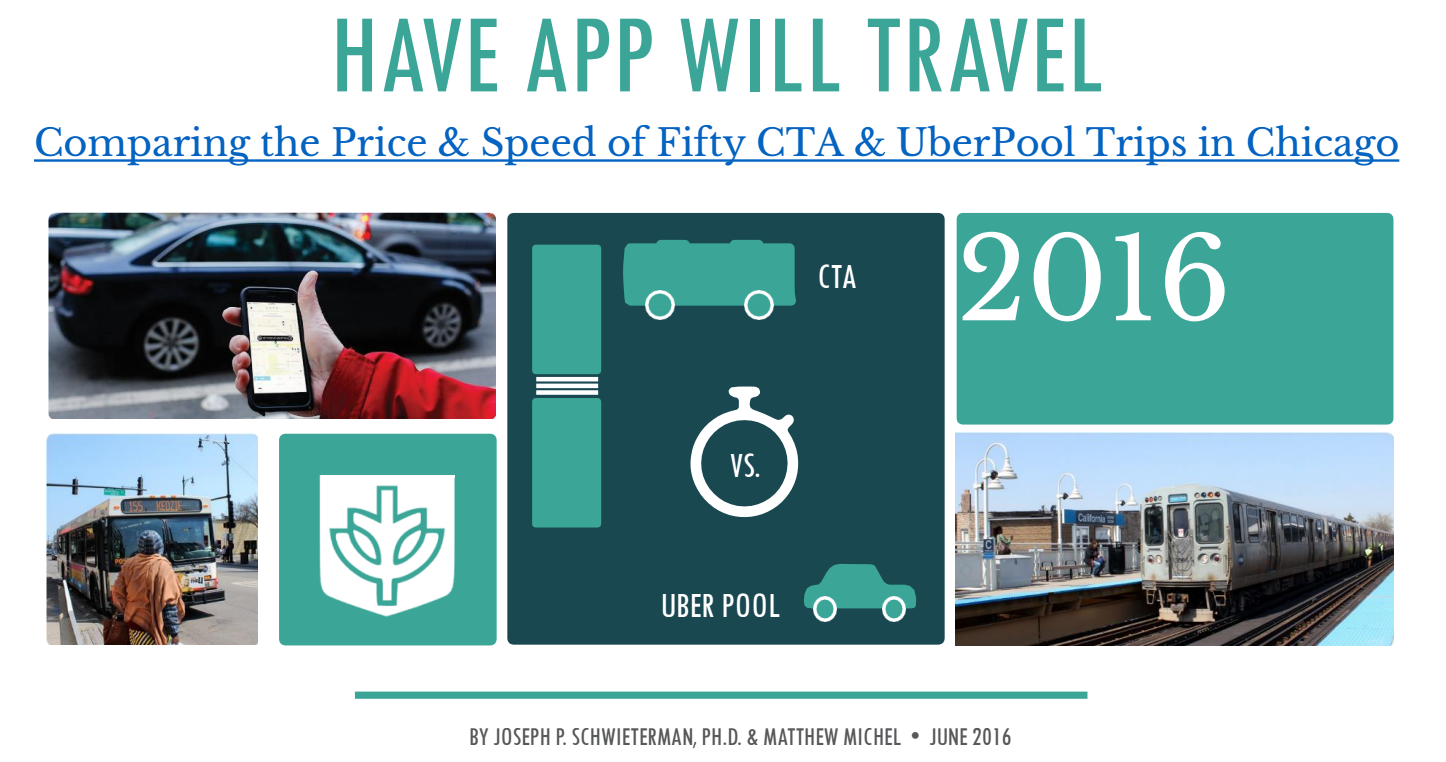News | METRANS Fall Speaker Offers Shared and Autonomous Vehicle Predictions
Stop the VideoNews

METRANS UTC
METRANS Fall Speaker Offers Shared and Autonomous Vehicle Predictions
Friday, August 5, 2016
by By Wai Shong Chan, MPA 2016
On July 28th, DePaul University’s Chaddick Institute and the Transportation Research Forum held a webinar to present transportation research conducted by Joseph Schwieterman, professor at DePaul University, and upcoming METRANS Fall 2016 research seminar presenter. He was joined by Chris Kopp, Transportation Planning Practice Leader for HNTB Corporation. Schwieterman’s research explored the travel behavior of citizens in Chicago and how this impacts the future acceptance and usage of shared autonomous vehicles (SAVs). Schwieterman will be further presenting his findings on the USC main campus as part of METRANS Fall 2016 Transportation Research Seminar Series.

In the webinar, researchers first introduced current modes of travel and explained how new travel patterns are emerging. For example, Chicago residents and tourists are increasingly using services such as UberX and UberPool instead of depending on services delivered by the Chicago Transit Authority (CTA) because the new travel applications provide inexpensive mobility with less walking distance and waiting time. In many cases, they are more convenient compared to CTA and the price difference is insignificant.
Researchers took various ZIP codes from the map of the City of Chicago and calculated the respective mode shares of UberPool and CTA. Then, they chose a random series of trips in order to analyze data collected from UberPool and CTA at the same exact time. Professor Schwieterman confirmed that “UberPool average travel time is lower when compared to CTA travel time because UberPool tends to make less stops from neighborhood to neighborhood trips. Additionally, people are less likely to experience pricing issues and traffic delays”.
The second section of the research explored how SAVs will disrupt current transit. The study showed how factors such as prices, waiting time, walking distance, and travel time can affect personal travel preferences and can encourage or disincentivize the future acceptance and implementation of SAVs. Chris Kopp suggested that “an early step in the planning process that considers SAVs involves evaluating how alternative ways of operating current fixed routes might occur in the presence of competition from SAVs”. He also agreed that it is important to approach the problem from four perspectives: (1) society, (2) agency, (3) taxpayer, and (4) customer in order to maximize the advantages and reduce the disadvantages of driverless technology. The following graphic depicts the results of the study:

Finally, positive and negatives implications of implementing SAVs were discussed. Some of the advantages of using SAVs include: (1) addressing the frequency-coverage dilemma, (2) reduction of traffic, parking costs, accidents, and emissions, (3) reduction of driver stress, (4) increase of urban roadway capacity, and (5) convenient and efficient mobility. Conversely, some disadvantages were also mentioned: (1) unreliable automated systems, (2) lack of standards and regulations, (3) eradication of public transit services, and (4) a decline in individuals’ health.
The research study presented in the webinar showed that optimistic predictions of SAVs’ benefits have raised hopes that this technology will soon be extensively accessible and will help to solve many transportation problems that exist today in our society. Nevertheless, for transportation leaders, it is important to be cautious when predicting the future role of SAVs.
For more information about the TRF webinar, the following link provides access to the video recording of the presentation: https://vimeo.com/176646256
Join us on Sept. 7, 2016 as we welcome Prof. Schwieterman to Los Angeles to present more of his autonomous and shared vehicle research as part of our METRANS Fall 2016 Research Seminar series. More information regarding this upcoming seminar can be found here.

Writer Wai Shong Chan
Wai Shong Chan is a recent MPA graduate from the Sol Price School of Public Policy at the University of Southern California and recipient of the 2016 John Randolph and Dora Haynes Foundation Award for Outstanding Performance by an MPA Student. She has keen interests in transportation projects, economic development projects, urban planning, and intersectoral collaboration. She is an active member and volunteer for WTS-Los Angeles and METRANS, and her main objective is to become a leader in the transportation industry.
News Archive
- December (1)
- November (6)
- October (4)
- September (2)
- August (3)
- July (4)
- June (3)
- May (7)
- April (8)
- March (11)
- February (8)
- January (7)
- December (7)
- November (8)
- October (11)
- September (11)
- August (4)
- July (10)
- June (9)
- May (2)
- April (12)
- March (8)
- February (7)
- January (11)
- December (11)
- November (5)
- October (16)
- September (7)
- August (5)
- July (13)
- June (5)
- May (5)
- April (7)
- March (5)
- February (3)
- January (4)
- December (4)
- November (5)
- October (5)
- September (4)
- August (4)
- July (6)
- June (8)
- May (4)
- April (6)
- March (6)
- February (7)
- January (7)
- December (8)
- November (8)
- October (8)
- September (15)
- August (5)
- July (6)
- June (7)
- May (5)
- April (8)
- March (7)
- February (10)
- January (12)















